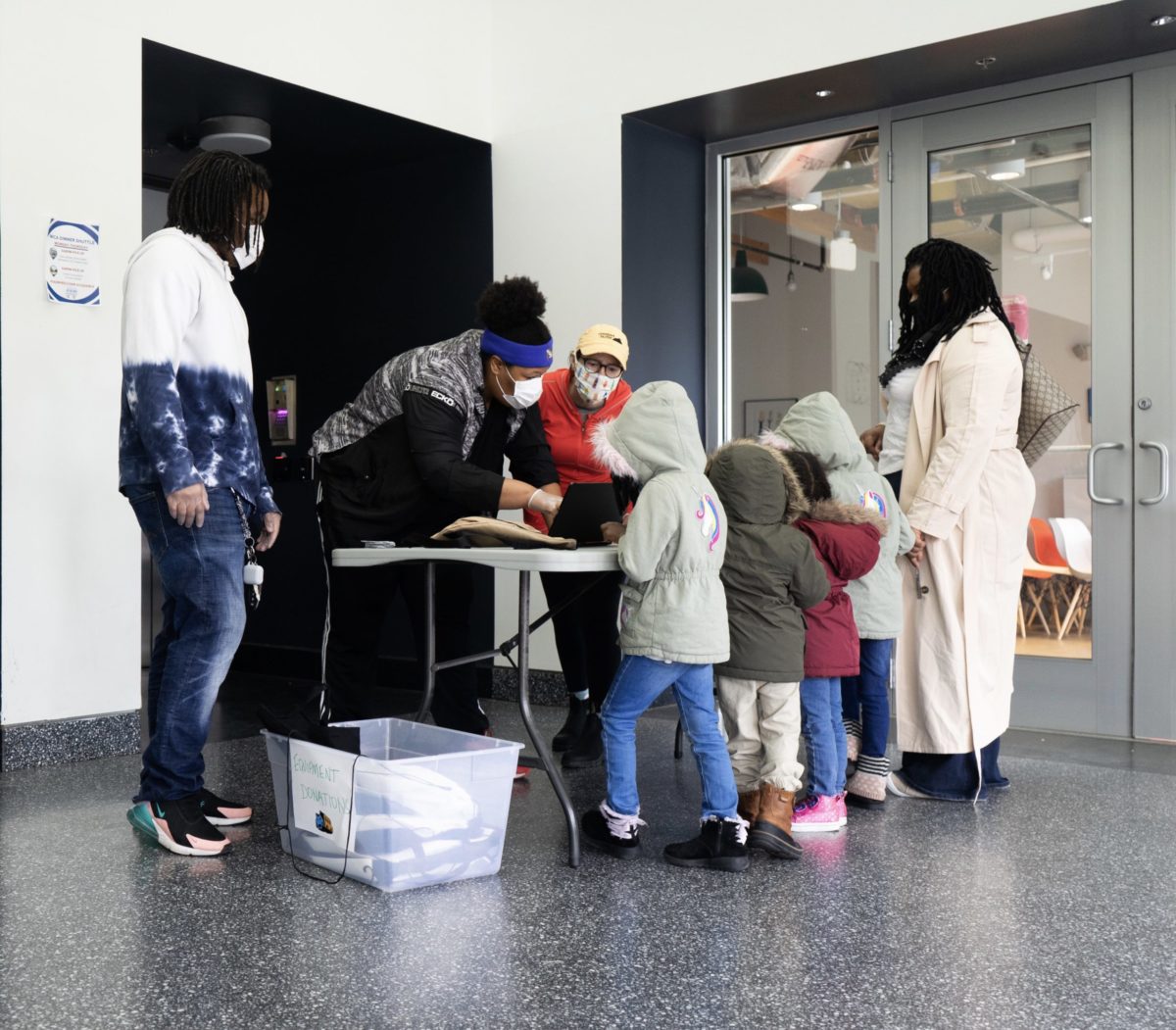Say goodbye, 2020.
It’s been a tumultuous year, where every turn had us asking questions about survival and learning our way in a new world.
This has led to a warped sense of time: In some ways, it feels like years have passed since January, and I attended demo days in person rather than on Zoom. In other ways, it feels like we’ve been in the same place since March (namely, at home).
The end of the calendar year can seem especially arbitrary. After all, the COVID-19 vaccine is still months away from wide use. (Now that will feel like the end of something, we hope.)
Still, one thing that has remained a constant is news. So it’s perhaps fitting that this year, our top 10 most-read stories aren’t just the usual collection of individual stories that caught pockets of our tech and entrepreneurship community’s attention for different reasons. Instead, they coincide with the major events and narratives that shaped the year, and changed us going forward.
For the most part, these aren’t just the top 10 Baltimore tech stories; they’re everyone’s. It’s a reminder that the events of the year affected the whole world, even our local innovation economy. Here’s a quick look at how:
1. This Johns Hopkins-made map is tracking the spread of coronavirus
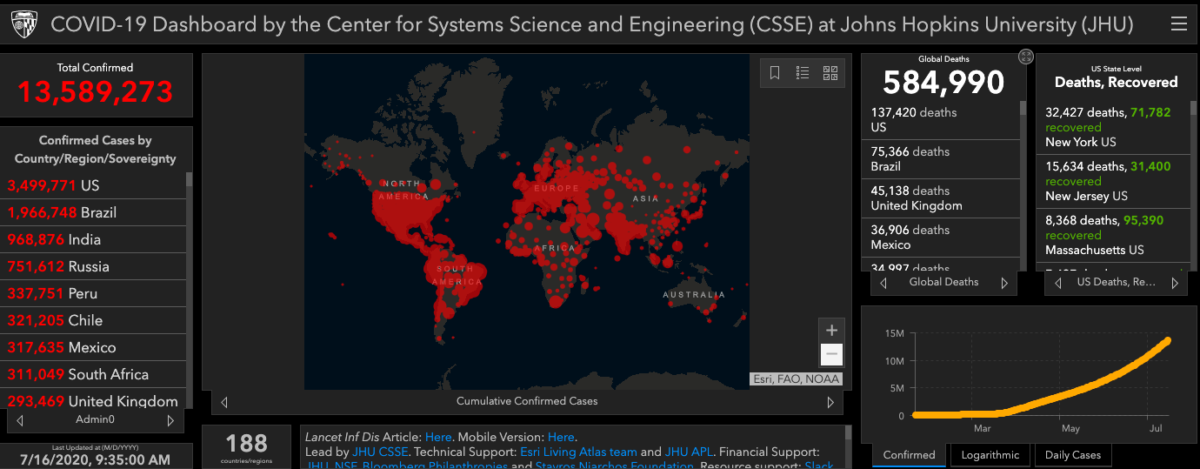
The Johns Hopkins COVID-19 dashboard on July 16, 2020. (Screenshot)
Back in January, a team led by Dr. Lauren Gardner the Johns Hopkins Center for Systems Science and Engineering launched a dashboard to present data about a virus that was spreading around the world. By March, the virus had caused a pandemic, costing lives and upending many more.
By now, we know that the pandemic defined the year. But it’s also worth thinking about how data shaped our response to unprecedented actions, as well. We sought to understand the scale of the pandemic and how it might be stretching systems. We also spent a whole week analyzing election results, and sifted through small business loan filings. So in a year filled with numbers and dashboards, it’s worth pointing out that the most prominent of these was made in Baltimore. Not even the CDC could mess with it.
2. For white people considering anti-racism, when your Black friends and colleagues have had enough
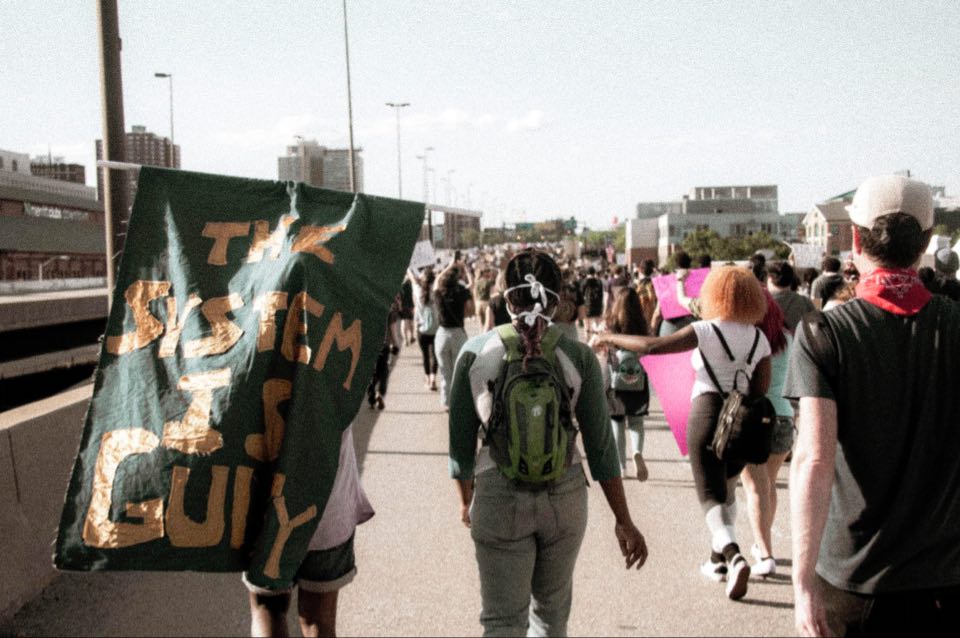
A youth-led protest in Baltimore, 2020. (Photo by Jerrod Clayton)
In late May, George Floyd was murdered by Minneapolis police. The pain wrought by the 8:46 video that showed an officer kneeling on Floyd’s neck galvanized a generational reckoning over how this nation treats Black people. This was most visible on the streets, where many marched in cities including Baltimore. But for white people, this has always been an interior struggle, as well.
Defeating racism requires understanding and confronting it in our communities and workplaces. It left many seeking resources. But as Alanah Nichole Davis reminds: You don’t pay Black people enough — or at all — for the emotional labor and anti-racism work that some of you are asking for. Use her guide to people, accounts and businesses to turn to instead.
3. Here’s how to apply for Maryland COVID-19 grant and loan funds for small businesses

Gov. Larry Hogan speaking on COVID-19 aid in March. (File photo)
We’ll repeat it now, and for history: The pandemic was not only a health crisis, but also an economic shock. The shutdowns for the sake of safety brought unprecedented job losses and left small businesses reeling. Alongside a massive federal funding package, states, like Maryland, stepped in to provide aid. That two of our top-read posts (this one, too) offered guides to those packages is perhaps a data point of the depth of the crisis. We’d do well to remember that as we enter another calendar year with spiking cases.
4. These are the 20 Baltimore tech companies to watch: RealLIST Startups 2020
Way back in January, our annual RealLIST focusing on startups looked at a group of the young companies we’re watching for future growth. As with so much of 2020, the story ended up showing a measure of resilience. We checked in six months later and found many of the companies still active, even as the events of the year led them to tear up plans and approach the market in new, if socially distanced, ways. Pivots were everywhere this year, whether companies were making PPE or adding new integrations. Coming up next month, we’ll have the fifth anniversary of this annual list. Who you got?
5. Navigating the two worlds of Baltimore

Alex Galiani outside the home where he grew up. (Courtesy photo)
In times of learning, it is necessary to step back and listen to, or read about, the experiences that have shaped a person. Technical.ly Baltimore Business Development Manager Alex Galiani was vulnerable and poetic in offering a look at his life in Baltimore, from his own upbringing to how he views the movement. Six months later, it feels like the world has been upended many more times in this tumultuous year. Yet reading the piece now is a reminder that improving life for Black people in this country should still take our focus. His words reverberate: “This is a marathon, not a sprint. The system is designed to wait you out.”
6. The Paycheck Protection Program went live today. Here’s how it played out for Baltimore entrepreneurs
The government spun up a $349 billion federal program in a matter of weeks, and small businesses were told it would be first come first served. On April 3, many were still understanding what this program was, even as they just needed funding to keep themselves solvent. At that point, this article also shows that many weren’t sure if they’d even be able to access the funding.
Over time, things got clearer. Many who applied in those early days got funding. Yet the systemic disparities played out. Even as billions in funding remained in federal coffers, many Black-owned businesses were left without help from the program. As Congress is set to pass more funding for PPP, it’s worth remembering how this played out for the haves, as well as the have nots.
7. These 17 Maryland biotech companies are collaborating in the fight against COVID-19
With COVID-19 leaving the world reeling, science had to advance fast to catch up with a new disease for which there was no cure. And eventually beating it will mean that products would need to be put into wide use ASAP.
Into this fight entered innovators from Maryland, where researchers and biotech businesses clustering around key institutions have long worked to move medicine forward. They brought expertise in vaccines, diagnostics and therapeutics, as well as manufacturing and clinical capabilities to help these new products move forward. 2020 brought a tough challenge, but it’s worth remembering that many companies collaborated for the common good. It showed businesses can progress together.
8. Hungry Harvest raises $7.25M Series A

A Hungry Harvest box. (Courtesy photo)
The Port Covington-based food delivery startup long had our attention with a socially inclined model that “rescues” product that otherwise would’ve gone to waste, and expansion that was demonstrating business growth. This year, the business grew as demand for such services spiked up while the world hunkered down.
This particular funding news arrived just as we were finding out how much life would change. But it wouldn’t be the last for Hungry Harvest, which ended up closing the round at $13.7 million, and adding an encore appearance on ABC’s “Shark Tank” along with it.
9. RealLIST Connectors: Meet 110 top community builders in Baltimore tech and entrepreneurship
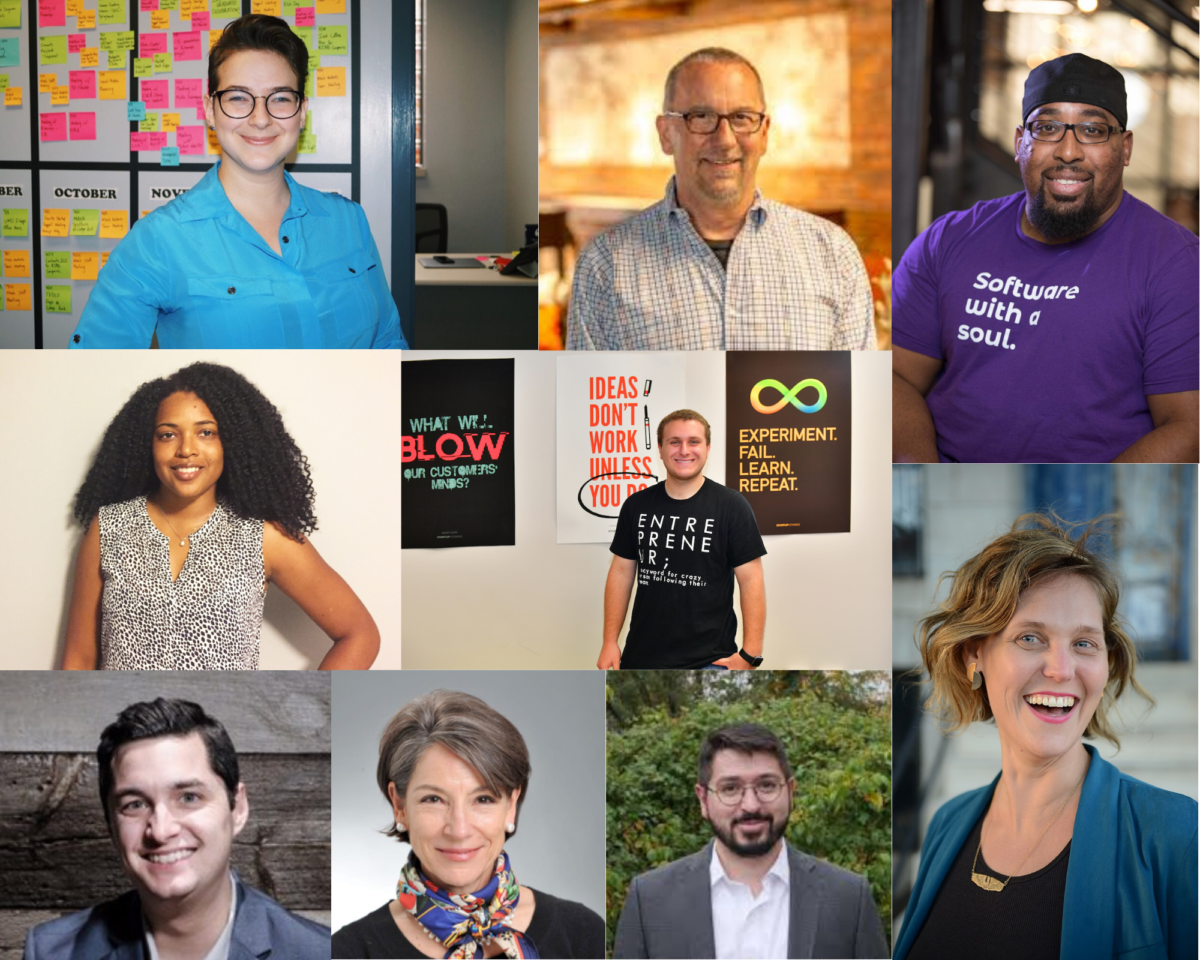
Some of Baltimore’s 2020 RealLIST Connectors. (Technical.ly image)
These year brought a new addition to our RealLIST series, as we set out to spotlight the people who are building community among entrepreneurs and getting sh*t done for Baltimore. Over nearly six years of reporting, I’ve had many a startup community leader pull me aside for a chat to tell me that, really, Maryland truly has a connective streak for the folks who are interested in starting new companies and advancing technology here. This list with 100+ worthy honorees offers evidence.
10. The Technical.ly mayoral questionnaire (more here and here)
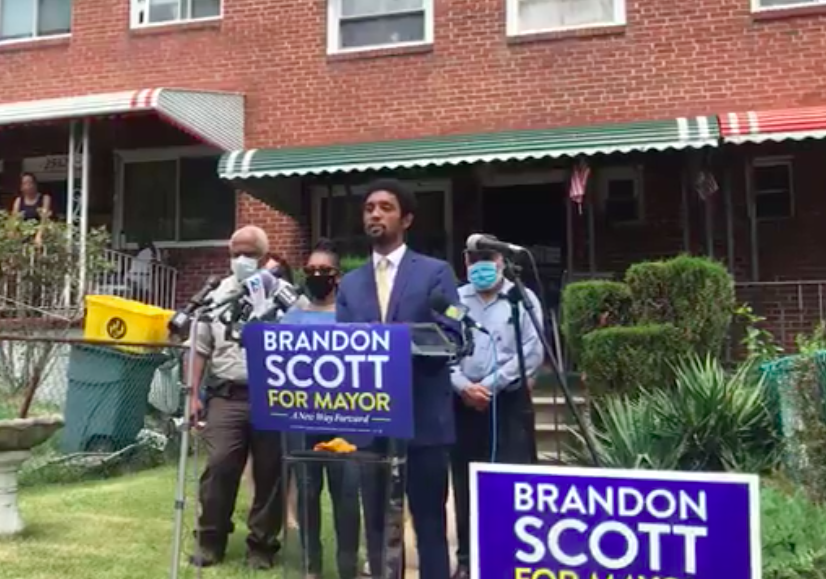
Brandon Scott speaks in Park Heights on after winning the 2020 Democratic mayoral primary. (Image via Facebook)
Generational elections were the rare big events that we knew we’d be facing in 2020 around this time last year. They weren’t spared the shifts of a tumultuous year, as they faced schedule changes and a shift to vote-by-mail. But the issues of 2020 made the votes even more important. You could see that on the local level, and even in our own questionnaire sent to Baltimore’s mayoral candidates.
We started drafting the doc before the pandemic, but issues around the city government’s role in digital connectivity and workforce skilling were already there. By the time the primary vote (eventually) came around, they seemed even more important.
We end the year with the start of a new term for a new mayor in 36-year-old Brandon Scott who is seeking to bring change to City Hall. Comptroller Bill Henry, City Council President Nick Mosby and a group of City Council members are all newly elected to their offices, as well. The shape of these terms will undoubtedly be among the biggest stories of 2021.
Bonus: 50 Baltimore orgs are joining together to close the digital divide — during the pandemic, and beyond
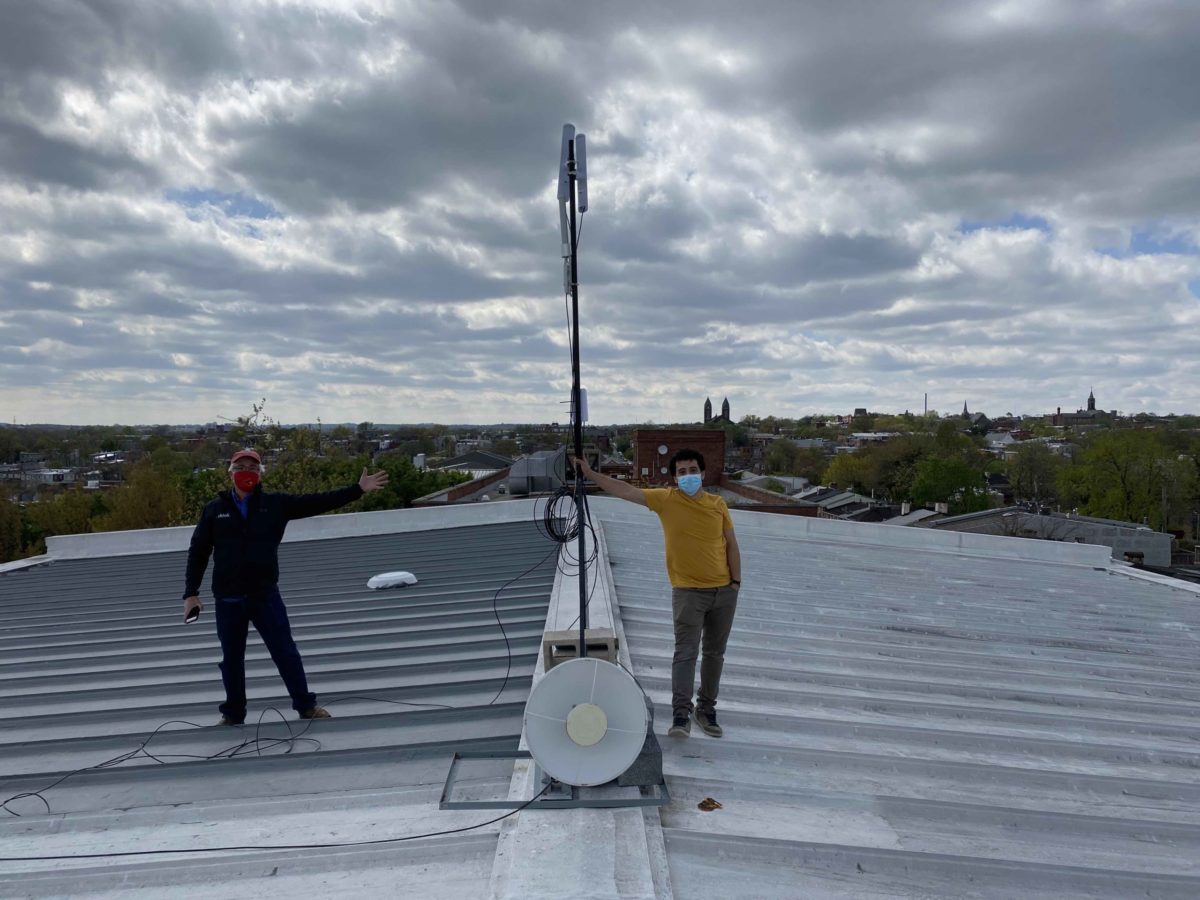
Ed Mullin and Adam Bouhmad light up Project Waves for Southwest Baltimore.
OK, so this one’s actually somewhere just outside the top 10, but we can’t leave 2020 without a reminder of one of the year’s most important lessons: When it comes to technology, bringing Baltimore forward will mean getting the whole city connected. On access to broadband and devices, we’re not there yet. And the Baltimore Digital Equity Coalition has emerged to galvanize action.
Coming out of this year, there’s data behind the scope of the problem, in the form of an Abell Foundation report that showed 40% of households lacked a wired internet connection. There’s evidence of the urgency, as the city’s public school district put laptops right alongside food as essential to keeping students learning. And this year, we saw new energy behind it, with grassroots action and coalition building to address digital equity by bringing together advocates, companies and funders.
We’ve long been on the lookout for the issue that would rally the tech community to speak with one voice on an issue facing the city. 2020 might have revealed it. We’ll get an early test in the state legislative session, where we’re already seeing meaningful organizing.
Before you go...
Please consider supporting Technical.ly to keep our independent journalism strong. Unlike most business-focused media outlets, we don’t have a paywall. Instead, we count on your personal and organizational support.
Join our growing Slack community
Join 5,000 tech professionals and entrepreneurs in our community Slack today!

The person charged in the UnitedHealthcare CEO shooting had a ton of tech connections

The looming TikTok ban doesn’t strike financial fear into the hearts of creators — it’s community they’re worried about

Where are the country’s most vibrant tech and startup communities?


